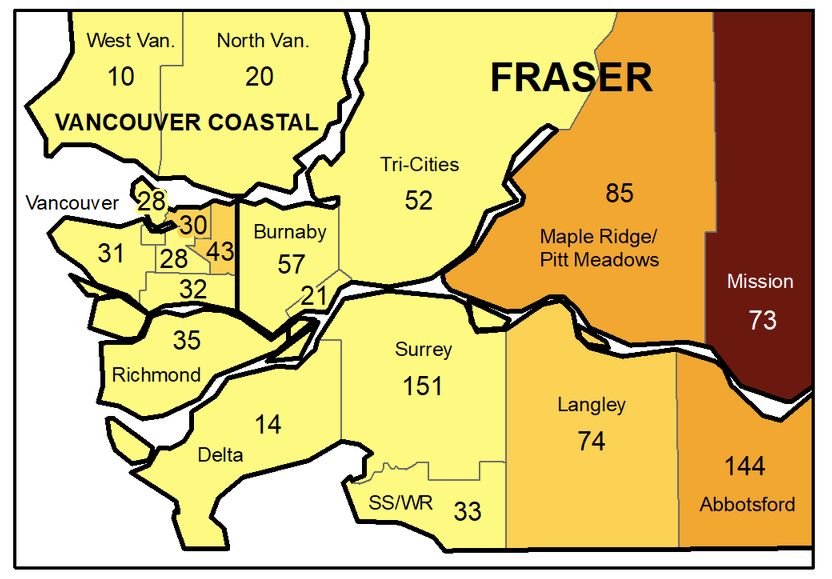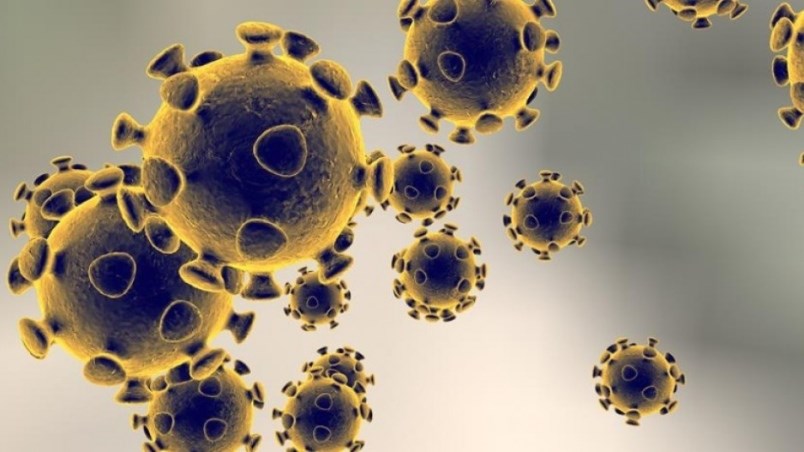The number of new COVID cases on the North Shore has dropped by about 50 per cent this week.
There were 30 new cases of COVID-19 on the North Shore in the past week – 34 fewer cases than the 64 cases reported last week.
Between Nov. 21 and Nov. 27 there were 20 cases in North Vancouver and 10 in West Vancouver, according to information released by B.C.’s Centre for Disease Control.
Data from the BCCDC shows rates of new infections have dropped in all areas of the North Shore this week. Rates ranged from zero daily cases per 100,000 on Bowen Island/Lions Bay to four daily cases per 100,000 in the upper part of West Vancouver.
Positivity rates for COVID-19 tests on the North Shore ranged between zero and four per cent.

Rates of vaccination on the North Shore are mostly static, with between 91 and 95 per cent of people over 12 already having received one dose and between 89 and 93 per cent of those fully vaccinated as of Nov. 30.
For the first time, BCCDC also included data on vaccinations for five-to -11-year-old children, which showed one per cent of those eligible in North and West Vancouver received their dose of vaccine in the first two days appointments were available this week, Nov. 29 and Nov. 30.
Between 90 and 94 per cent of teens between 12 and 17 are fully vaccinated on the North Shore while between 87 and 94 per cent of adults between 18 and 49 have received both shots. Rates of vaccination remain highest in adults over 50 with between 90 and 92 per cent fully vaccinated.
Between 50 and 56 per cent of adults 70 and older and between 20 and 26 per cent of adults 50 and older have also received booster doses on the North Shore.
Provincially, 379 new cases of COVID-19 were reported Wednesday.
A total of 301 were hospitalized with the virus and 98 people were in intensive care in hospital.
In the past two weeks about 64 per cent of hospitalizations in the province from COVID were among people who were not vaccinated.
Dr. Bonnie Henry, the provincial health officer, reported B.C. has recorded its first case of the Omicron variant of the virus this week, first identified in South Africa. The variant, only recently identified, is of concern to health authorities around the world because of its high number of mutations. The virus is thought to be much more transmissible than earlier variants although scientists still don’t know yet if it causes more severe illness or may evade protection from vaccines and result in more breakthrough infections.
The federal government moved this week to halt travel from a number of African countries in an effort to stop the spread of the virus. All travellers arriving from destinations outside Canada and the United States must also take a COVID-19 test on arrival in the country and quarantine until results are known.


